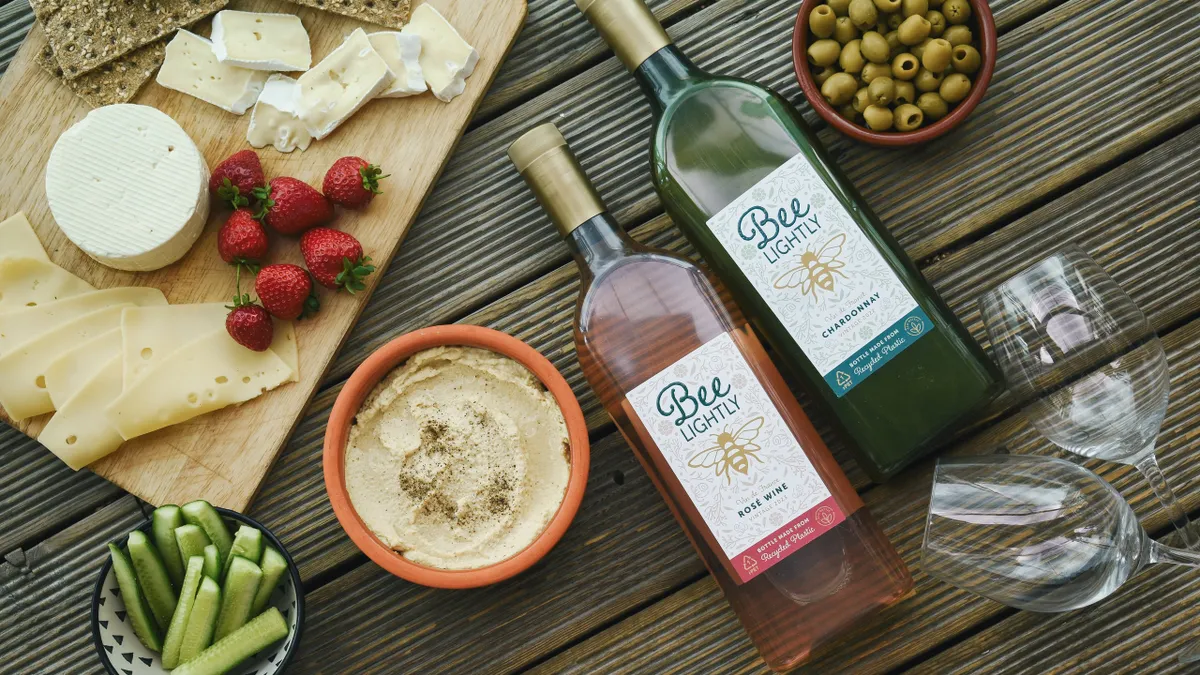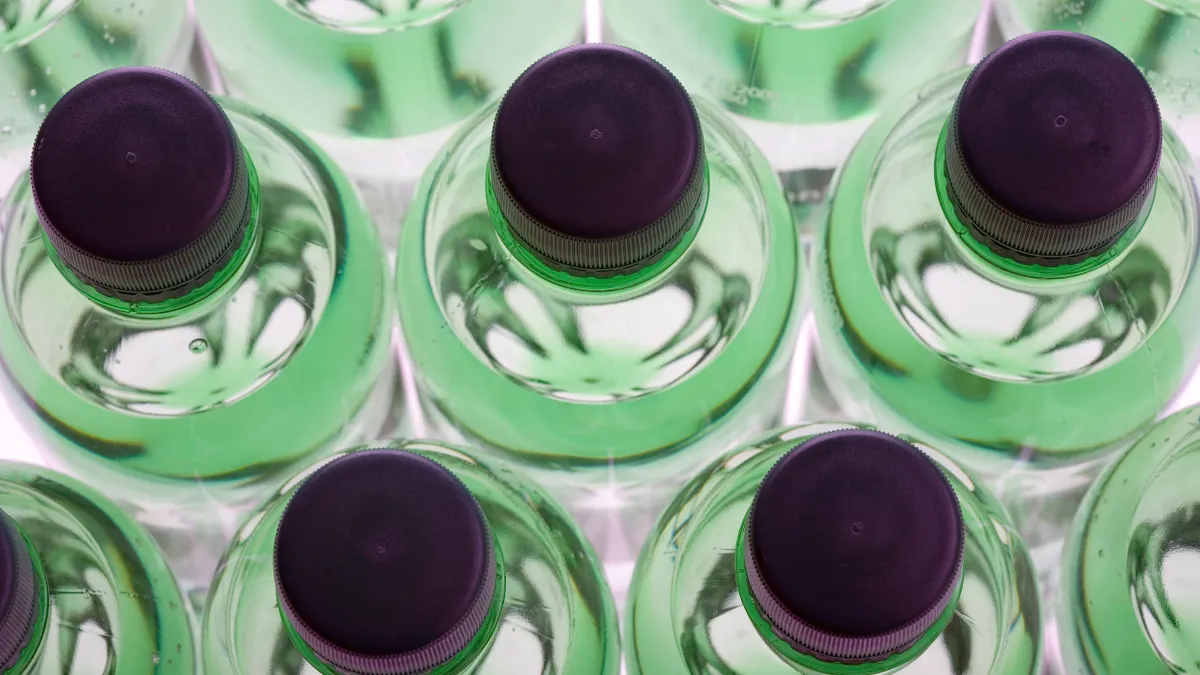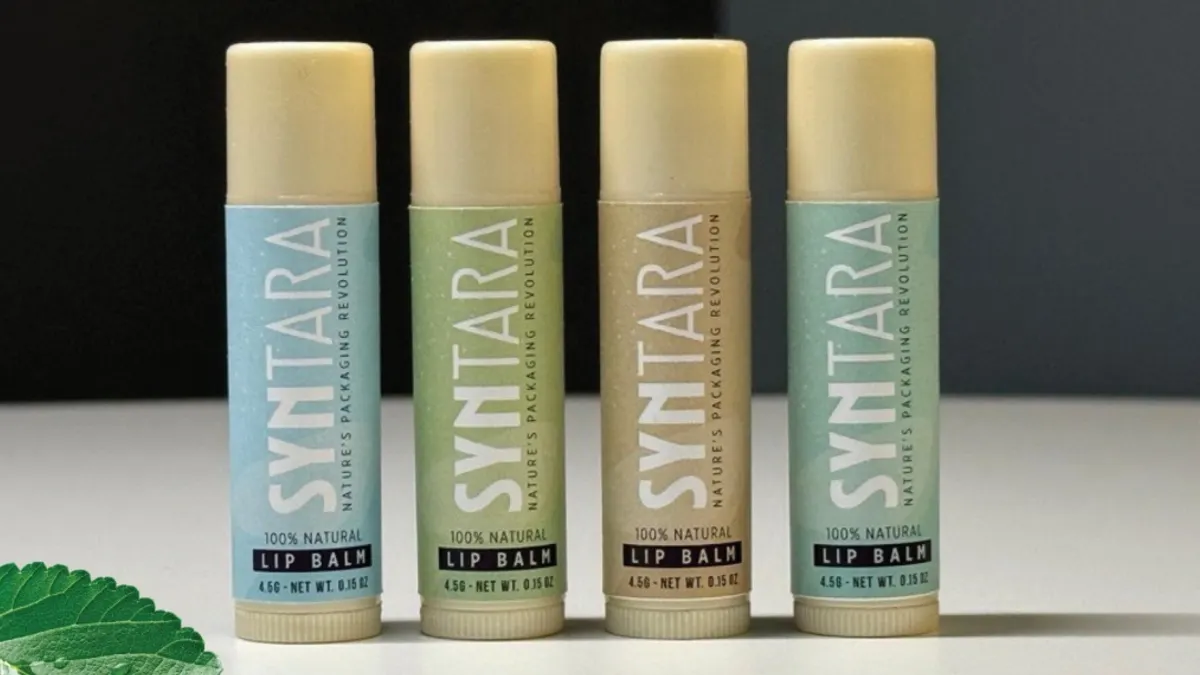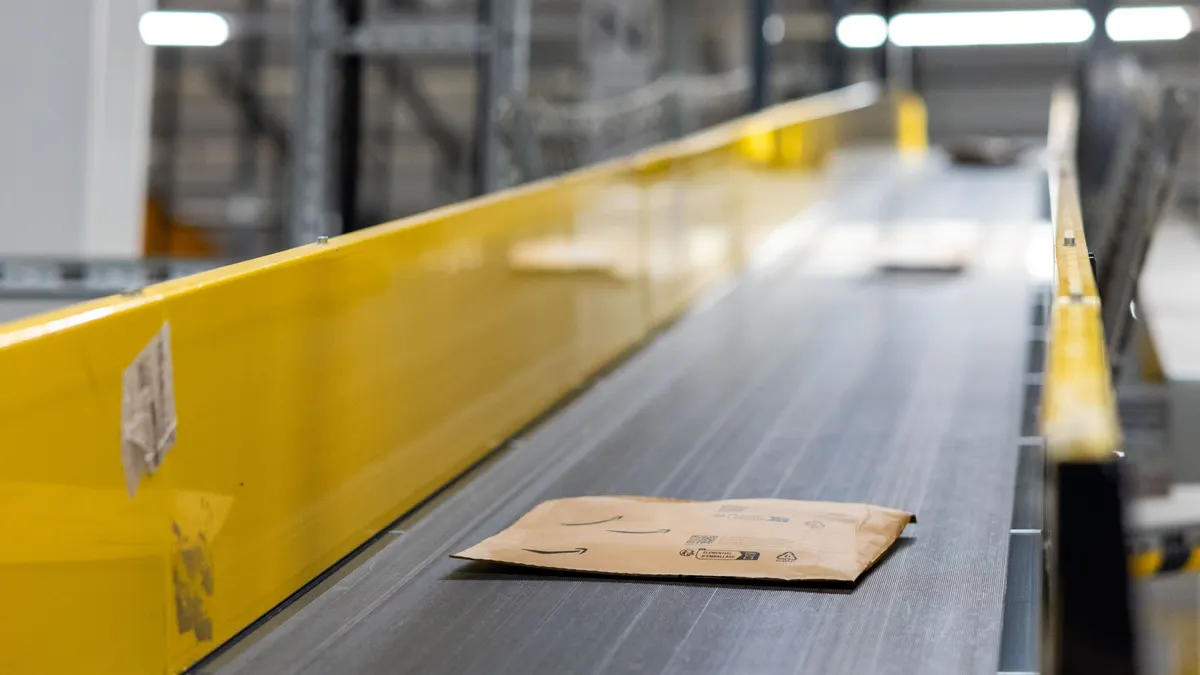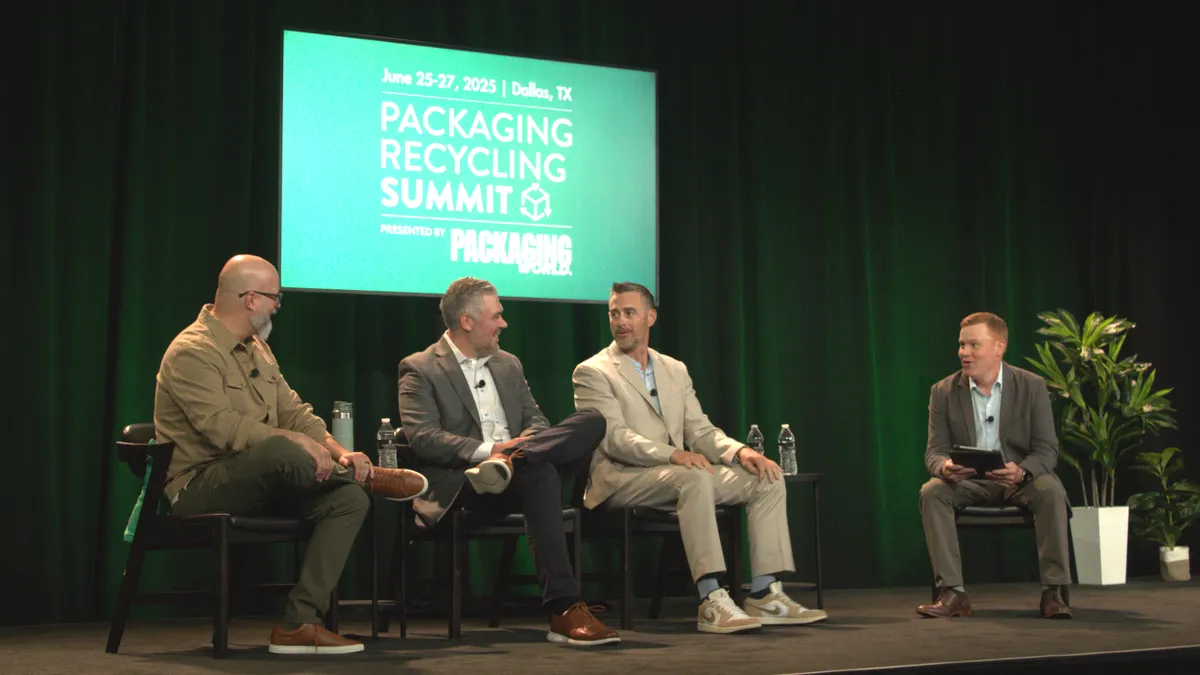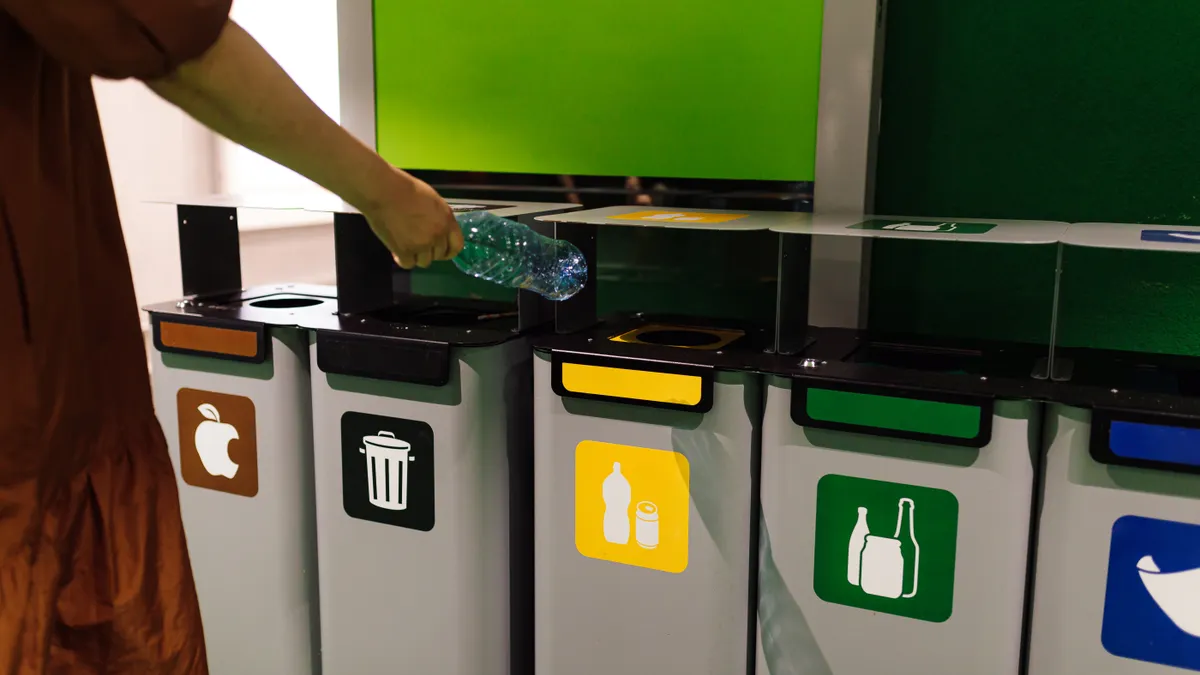Companies constantly innovate with technology and redesign their packaging to get better performance, improve marketability and enhance sustainability. Here’s a look at five new or redesigned packaging solutions on Packaging Dive’s radar.
Flat-out recycled plastic
Albertsons grocery chain introduced a new private-label wine line, Bee Lightly, and it’s going to look a little different than other options on the shelves. The bottles are flat and made of 100% recycled PET. While Aldi launched similar bottles for its own-brand bottles in the U.K. earlier this year, Albertsons says its “innovative approach to wine packaging marks a first in the U.S. market.”
Albertsons developed the new packaging in collaboration with WX Brands and Packamama — the packaging company that also helped Aldi with its flat rPET bottles. The bottles are 87% lighter than traditional glass options and are recyclable, according to Albertsons. And the shape allows nearly twice as many products to be transported on one pallet.
The product is available at select Albertsons stores, including Safeway and Jewel-Osco.
Johnnie on the spot
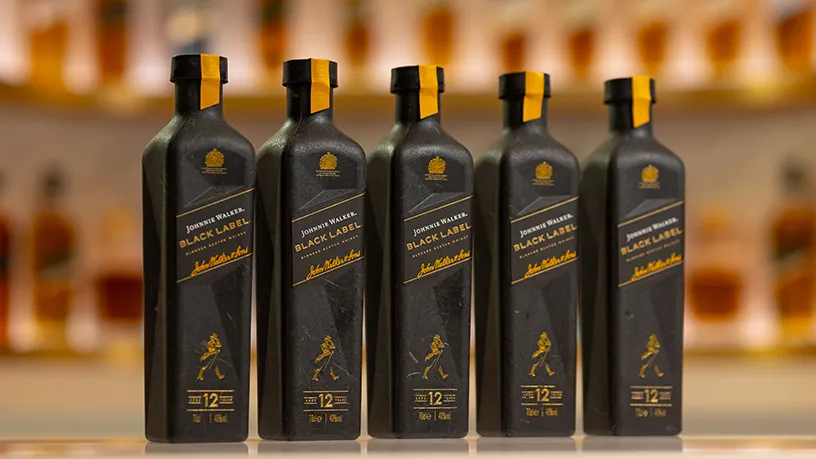
Coming on the heels of the announcement of its lightest-ever glass bottle, scotch whisky brand Johnnie Walker revealed the trial of a 90% paper-based bottle. Parent company Diageo worked with dry molded fiber company PulPac and PA Consulting to develop its first paper-based, 70-centiliter bottle.
The bottle has a thin plastic liner, but that is not required to be removed for recycling, according to Diageo. It’s about 60% lighter than standard Johnnie Walker glass bottles, according to Diageo, and an initial life cycle analysis showed a possible 47% reduction in carbon emissions. The bottle closure is made from cork and dry molded fiber; it’s not yet recyclable, but alternatives are in development.
This is Diageo’s second paper-based container trial, following its summer launch of molded fiber bottles for individual-sized Baileys beverages in Spain. The design team applied findings from the mini Baileys bottle test to creation of the larger, more complex Johnnie Walker bottle.
The product trial began this week and will take place exclusively at Johnnie Walker Princes Street's 1820 bar in Edinburgh, Scotland, until mid-October. Diageo will examine how bartenders interact with and pour from the new bottle, in addition to how well the bottle holds up in a bar environment.
Metal reboot
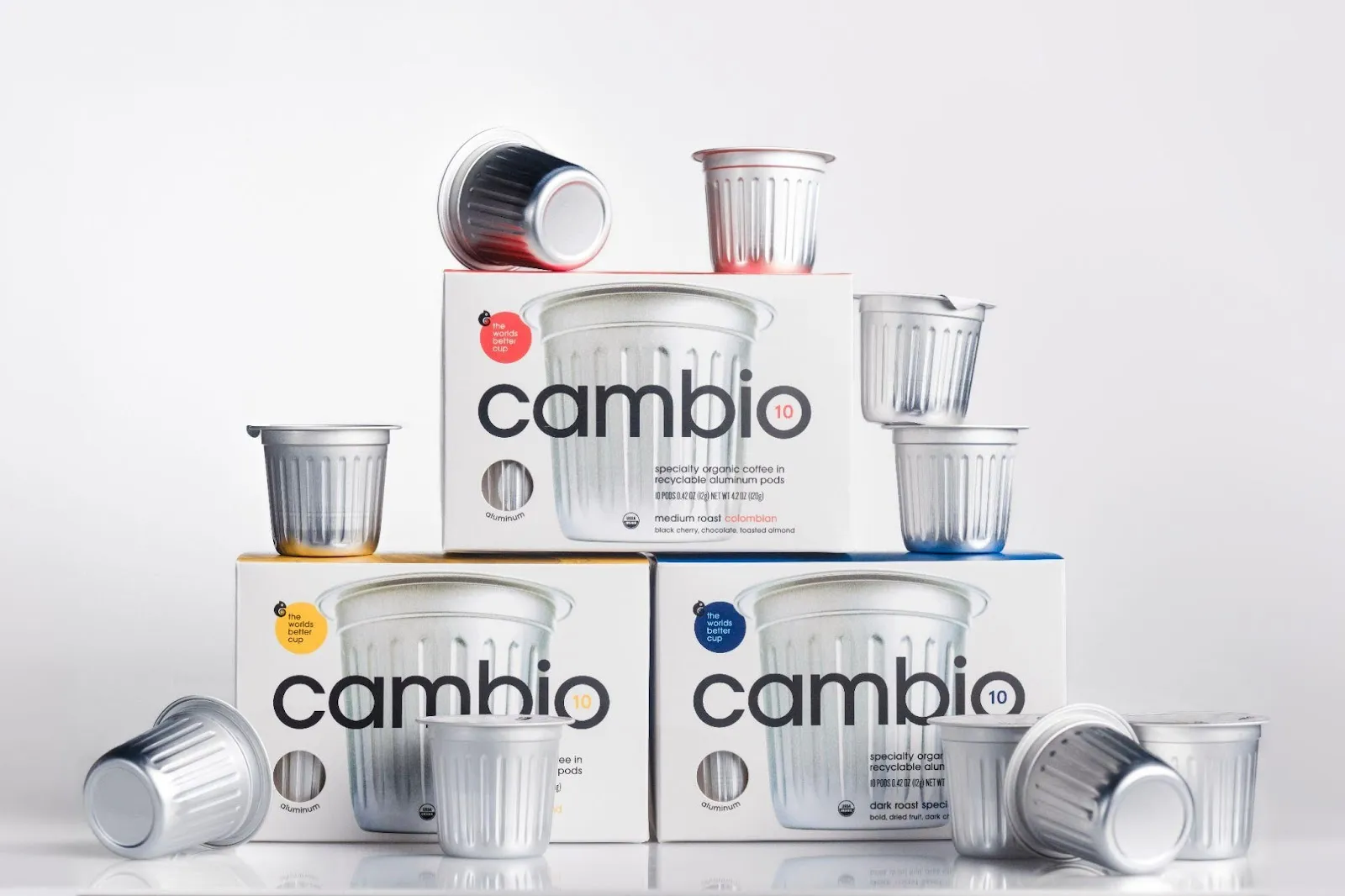
Cambio Roasters launched “groundbreaking” aluminum-based K-Cups for Keurig coffee brewing machines as a more sustainable alternative than the conventional plastic K-Cups.
The company also contends that plastic’s porous nature makes it less effective at preserving coffee freshness compared with aluminum. The metal provides a “nearly perfect oxygen barrier,” the company said in a news release.
"There's no sense in compromising the quality of the world's best organic coffees, expertly roasted and curated, by placing them in a plastic vessel that's porous,” said Kevin Hartley, Cambio CEO and former Keurig Green Mountain chief innovation officer, in the release. “This innovation is so exciting because it’s better for coffee, better for the world, and better for you.”
The aluminum pods are available online and at more than 1,000 retailers nationwide, including Hannaford, Harris Teeter and Walmart.
A lid for every pod
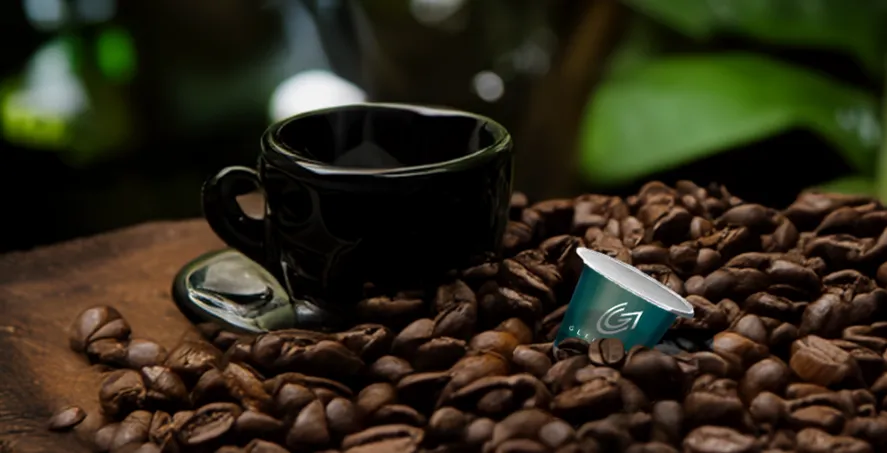
Also on the coffee pod front, engineered materials supplier Glatfelter introduced a biobased lid for espresso pods. It said in a news release that the items can be composted at home when paired with a compatible base container.
A Glatfelter representative said via email that that multilayer product predominantly is cellulose, with a proprietary home-compostable and heat-sealable biopolymer layer. The company noted in the news release that traditional polyethylene-coated aluminum film lids pose challenges, and alternatives such as polylactic acid and polyhydroxyalkanoates fall short of requirements — such as maintaining an oxygen and moisture barrier — despite offering some environmental benefits.
The company said this lid has the potential to be adapted for other single-serve applications beyond coffee pods.
Shrink up

French shrink sleeve label company Sleever teamed up with fellow French company Carbios, a plastics biotechnology business, to reveal what they call the world’s first home-compostable tamper-evident seal, Seelcap Onego.
This is a proprietary product that “disintegrates completely in composting conditions, even at room temperature, in less than 6 months,” according to a Carbios news release. Seelcap Onego’s overall carbon footprint is 70% less than that of conventional shrink capsules, the company said.
While the biodegradable product is fit for a variety of applications that require tamper evidence, it’s particularly suited for glass bottles with wooden caps, according to Carbios. It integrates with existing filling lines and shrink-fitting equipment.



